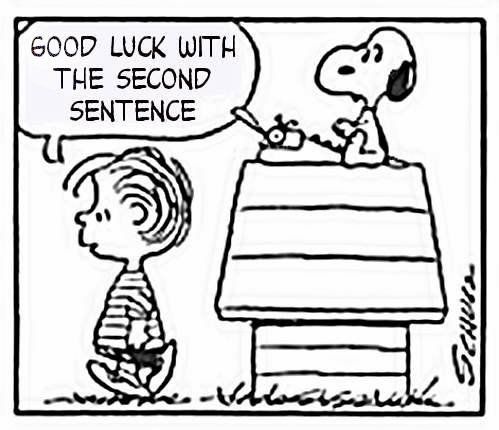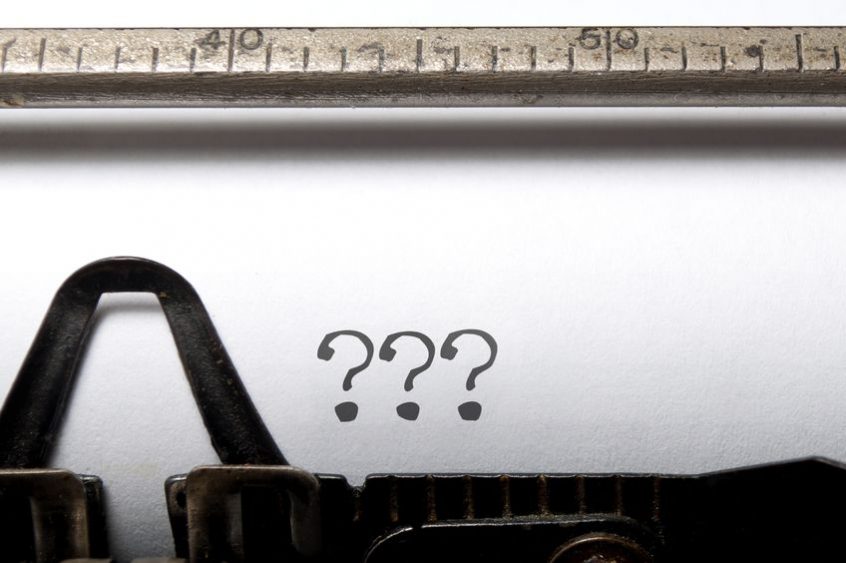You’re all set … you’ve got the right notebook and right pen, or your computer screen is ready and the cursor is blinking at you from the page. You settle in take a deep breath — and you’ve got nothing. Not a single thought of where the story is going. Not a single word to scribble or type. Nada. Bubkis. The clean white page or blinking cursor is mocking you. How can this be when you were so ready to write?
I’m not a big fan of the term writer’s block because the word block tends to make me feel like the problem is insurmountable. And if I walk around telling myself I’m completely blocked … I will be. The situation will only get worse. Because tomorrow, you’re not going to be as eager to write because you have the word BLOCK stuck in your head. The day after that will be even harder until so much time has passed and you’re afraid to even face the blank page. So the question becomes how to avoid the big, bad block.
 Every writer I have ever known has faced at least a few bad moments where the words are hard to find, and there are posts all over the internet about how to get around the block. But how do you know which method is going to be most effective? How can you keep trying if you keep failing to get words on the page? For me, it all boils down to one little word … Why?
Every writer I have ever known has faced at least a few bad moments where the words are hard to find, and there are posts all over the internet about how to get around the block. But how do you know which method is going to be most effective? How can you keep trying if you keep failing to get words on the page? For me, it all boils down to one little word … Why?
When the words dry up and I am staring at the page, rather than get frustrated, I start looking for the reason. There is always a reason. And once I figure out the reason, the writing resumes. People have different ways of dealing with the words drying up and that will be the topic for another post. The method most effective for me is to walk away from the screen, put my headphones on, and go for a walk. While I’m on the walk, I don’t furiously think about the book I’m writing or actively try to figure out the issue — I put the brain on autopilot and listen. My brain is much smarter than I am, and if I give it a chance, it always gives me the reason.
Here are some of the reasons the words can dry up:
- Not knowing the characters well enough. If I don’t know the characters well, then how can I possibly tell their story with any conviction?
- Not knowing where the story is going. You can know your characters well, but if you don’t know what they are doing next, you might need to take a break and let them tell you.
- Not listening to your characters. This may depend on the type of writer you are. In my writing, the characters drive the story forward. So when I know my characters and know where we’re going, sometimes I get on a roll writing, and stop listening to them … until we come to a screeching halt. Once I listen I learn I didn’t have the full story.
- Impostor Syndrome. Show me a writer, and I’ll show you someone who has had at least a few moments of doubt along their journey. So many don’t feel like a real writer because of X, Y, or Z. It’s hard to keep moving forward when you feel like a fake. If this is the reason, then you have to remind yourself that the act of putting words on the page means you ARE a writer. Good, bad, or indifferent … you are writing, so therefore a writer. Bad or indifferent writing can be edited — a blank page cannot be.
- Fear. This comes in many forms. Fear of not being good enough. Fear of people hating your work. Fear of not realizing you are terrible. Fear of putting yourself out there for the public to criticize. If you never finish, you never have to face these fears.
Once you understand the reason you have stopped writing, you can take action to overcome whatever the issue is, and once you do that, the words will flow again.


